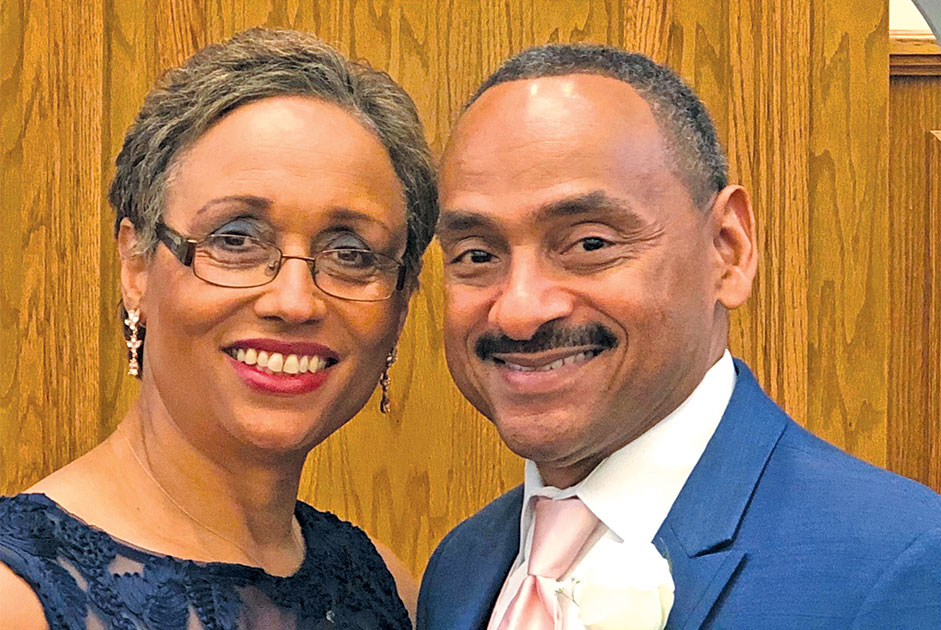Voices Changing Communities: Dr. Angela P. Hairston, Superintendent of Winston-Salem/Forsyth County Schools
“Our community should make public education a priority.”
The decision to return children and teachers to the classroom after months of virtual teaching would have many communities and school boards struggling to find the best solution for our children, their families, and their teachers.
Under the leadership of Dr. Angela Hairston, the Winston-Salem/Forsyth County School Board tackled this difficult decision on October 1. When Dr. Hairston accepted the role of superintendent of the Winston-Salem/Forsyth County School system in August 2019, she could not have anticipated the challenges that the COVID pandemic posed to the health and education of children in the public school system in 2020. But she was uniquely prepared and ready to make difficult decisions while leading a community school board comprised entirely of women. Dr. Hairston values the variety of vocational backgrounds of the nine female board members and praises their belief in the local public school system. “We should make public education a priority again, and our school board understands that need,” is the message Dr. Hairston voices clearly.
“Education is the backbone of democracy.”
Though educational leadership is typically a male-dominated field, Dr. Hairston has served as a leader throughout her 30-plus years as an educator. Before her role as superintendent in the WS/FCS system, Dr. Hairston led several schools as the principal at the elementary, middle, and high school levels in Virginia and Georgia. In many of these roles, she was the first female or first African American female to serve in a position, but that is not her focus when she is asked to describe herself. She stresses her love of family, her husband, and children, and of her father, who taught her that girls should work just as hard as boys, at any task.
She accepts her many career “firsts” with pride and a sense of accomplishment but also sees them as a call and responsibility to mentor other female leaders. Strong female mentors influenced Dr. Hairston along her professional journey, starting with her mother, who was very spiritual, and her Aunt Sondra, a professor at the University of Maryland. Aunt Sondra mailed books as Christmas presents, not toys, fostering an appreciation for education at a young age. Francis Davis served as her mentor while working in Georgia, and Ann Clark, from the Charlotte/Mecklenburg school system, still serves as a mentor. Dr. Hairston urges female leaders to seek out mentors, especially those who are not afraid to ask challenging questions and nurture decision-making skills.
While Dr. Hairston stresses mentoring’s importance, she calls for our community to address the growing “education gap” in our public schools. When asked to name the most significant disparity impacting our public-school system, Dr. Hairston immediately identified the community issue of poverty.
“Experience has taught me that education is no longer enough as the equalizer to overcome poverty or racial barriers. More is needed. Poverty continues to have the greatest impact on the education of all types of children.” She explains that the gap is widening between the education of children whose parents have the means to enrich their children’s schooling and those who do not. Parents may be working several jobs just to make ends meet and lack the resources for summer camps, tutors, Internet, or computers, many things that middle-class children view as expectations. She, along with other educators, encourage our community to make Wi-Fi a public utility and to be strategic in opportunities to help all students eventually be successful in college. This has never been more acutely recognized as it is during the pandemic. The education gap became even wider after the COVID pandemic exposed the inequity in access to Internet and to devices for virtual learning. Making public education a priority means building more equitable access and learning opportunities, and narrowing the gap between the haves and have nots.
Dr. Hairston’s voice has already changed our community for the better by strengthening the ability of our public school system to meet the challenges of the COVID pandemic. Her leadership represents hope in our community’s ability and in our female leaders to make education the equalizer again.


















